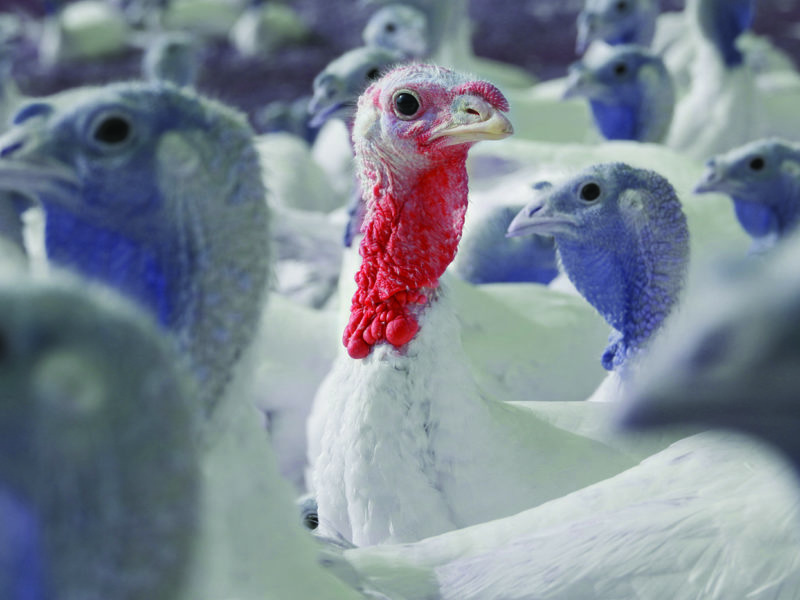Turkeys have accounted for more than half the commercial farms testing positive in this year’s AI outbreaks in BC, with two farms testing positive this fall on the heels of others earlier this year.
The highly pathogenic nature of this year’s outbreak means it can spike a grower’s hopes within days, making early diagnosis key to limiting the distress to birds within the flock and the risk of spread to other farms.
While there have been no reports of farm-to-farm transmission this year, the risk means growers can’t be complacent. A total of 266,000 birds in BC have been affected at seven commercial operations to date and 21 other properties.
“AI is not going anywhere, any time quickly,” BC Chicken Marketing Board executive director Woody Siemens told chicken growers at their regular producer meeting in Abbotsford October 26, urging growers to maintain their red biosecurity status. “We’re definitely under threat. It’s a huge cost to the industry when we do get hit, so just stay vigilant.”
However, minimizing the disease’s impact on industry has also led the Canadian Food Inspection Agency to simplify protocols for rescinding primary control zones imposed when infections are reported.
“They greatly simplified the process for permits, and some of the timelines that the primary control zones exist,” says Siemens. “They added security zones, which basically after 14 days of surveillance, they’ll move to security zone which eliminates the need for specific permits.”
The primary control zone established around a Chilliwack farm following a positive case September 12 is now simply a “security zone.” Siemens says it is set to be lifted by November 9.
The changes relieve a great deal of the administrative burden an outbreak imposes on industry, freeing up time for other endeavours.


 Rodenticides banned
Rodenticides banned